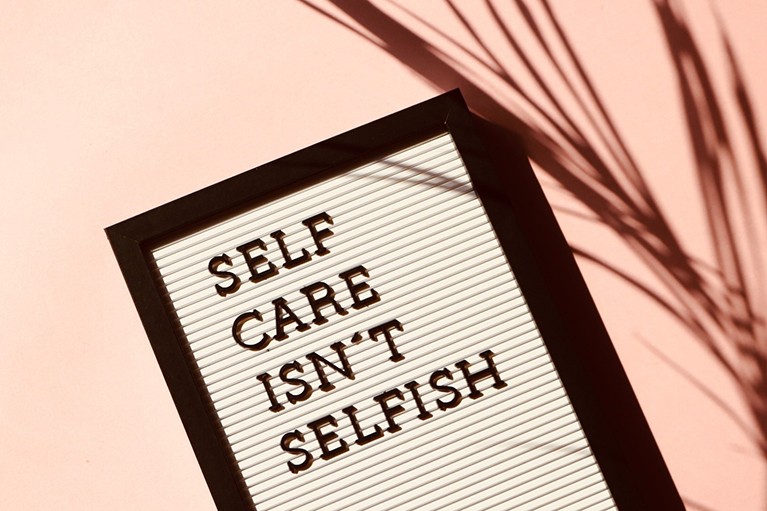Suicide Prevention Week
September 19, 2022

Coping with stress, trauma, and mental health conditions such as depression can be a daunting task, and possibly one of the more challenging health issues affecting society. Experiences such as abuse, violence, bullying, and sexual violence are prime examples of the types of traumas that can lead someone to commit suicide, which is a growing cause of concern for mental health. If you’re like one of the millions of Americans who have or are battling thoughts of suicide, just know that there are resources out there to help you in your fight. Most importantly, just know that you are not alone!
A Growing Public Health Concern
Did you know that suicide is the 10th leading cause of death in the United States? Suicide was responsible for 47,500 deaths in 2019 according to the CDC, while 12 million adults seriously considered suicide with 3.5 million planning suicide, and 1.4 million attempting suicide. Suicide rates in the United States have increased 33% from 1999 to 2019. Suicide affects all ages, and has varying rates amongst various groups according to ethnicity, occupation, and sexual orientation. In Guam, suicide deaths occur predominantly in younger people, about 52% occurred amongst youth and young adults below the age of 30. In 2018, there were 44 suicide deaths in Guam resulting in a suicide rate of 31.3 per 100,000 people, and is the eight leading cause of death in Guam according to the Guam Department of Health and Social Services Vital Statistics data report published in 2017.
The Impacts of Suicide
Suicide and suicide attempts cause serious emotional, and physical impacts. Survivors of suicide may experience long-term health effects as a result of attempted suicide, while also experiencing worsened depression and other mental health concerns. However, more than 90% of suicide survivors go on to never die by suicide which serves as an example of how suicide prevention efforts can effectively help survivors by connecting them with the right resources to feel better.
Suicide does not only affect the health of survivors, but friends, loved-ones, co-workers, and the community too. Family and friends of suicide victims often experience shock, anger, guilt, symptoms of depression, and even suicidal thoughts themselves as a result of suicide. This is why it is important to come together to help prevent suicide.
How to Know if Someone is at Risk
There are several tell-tale signs, experiences, and behavioral patterns of suicide, and it’s important to recognize these risks so that you can get yourself or a loved one the right help. For individuals’ suicide is prevalent for those with:
- Mental illness, such as depression
- Social Isolation
- Criminal Problems
- Financial Problems
- Impulsive or Aggressive Tendencies
- Job Problems or Loss
- Legal Problems
- Serious Illness
- Substance Abuse Disorders
In addition, our relationships we share with one another can play defining roles in someone’s decision to attempt suicide, and it’s important to recognize and address these issues to help prevent suicide. These relationship issues may include:
- Adverse childhood experiences such as child abuse and neglect
- Bullying
- Family history of suicide
- Relationship problems such as break-up, violence, or loss
- Sexual Violence
Lastly, issues that exist within our community play key factors in suicide amongst individuals including:
- Barriers to healthcare
- Cultural and religious beliefs
- Suicide clusters within a community
- Stigma associated with mental illness or help-seeking
- Prejudice based on sex, sexual orientation, religion, wealth, etc.
Suicide Prevention
Everyone has a role to play in preventing suicide and this can be done through strengthening economic supports for families, increased access and delivery to vital suicide prevention care, and promoting connectedness and protective environments amongst our community. Quite often isolation, especially when dealing with important life changes, traumas, or experiences, can be a critical time before an attempted suicide, so you can play a big role in preventing suicide just by checking in on your family, friends, and acquaintances especially if you know that they are or have been coping with any of the previously mentioned risk factors. If you or a loved one exhibit risks of suicide it’s important to seek help, you can reach out to a friend or a loved one or contact your local mental health facility to get the help you need to get better.
If you are having serious thoughts of suicide, it is important to seek help immediately by contacting 911 or contacting the suicide hotline numbers below:
Guam 24-hour crisis hotline: 671-647-8833
CNMI 24-hour crisis hotline: 670-664-LIFE (671-664-5433) / 670-664-LIVE (671-664-5483)
National Suicide Prevention Lifeline: 1-800-273-TALK (1-800-273-8255)
For more information and helpful resources, you can visit these links:

